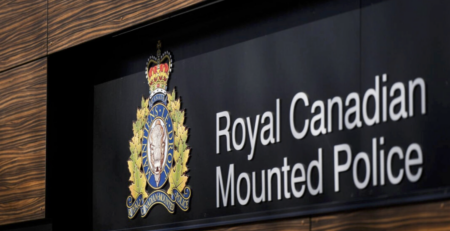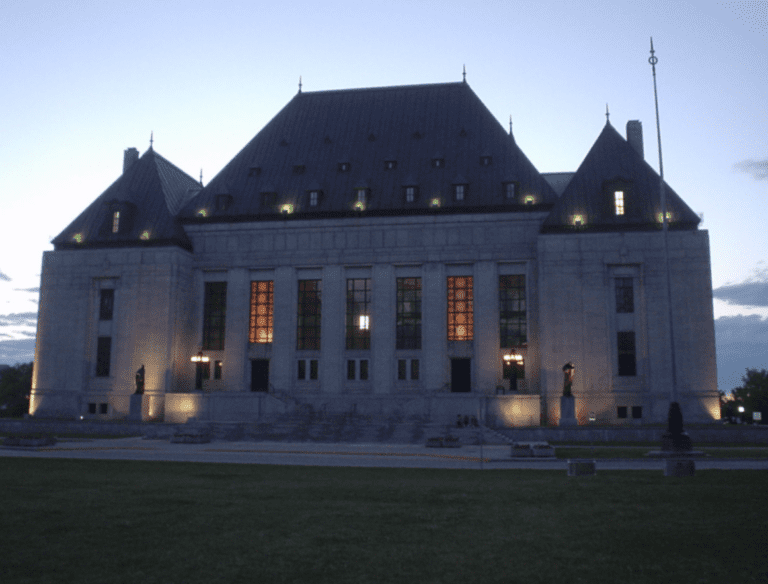John Carpay – The Epoch Times
A Globe and Mail story reports that the Bloc Québécois and special interest groups want to amend Bill 63 (Online Harms Act) “to stop religion from being used as a defence for hate speech.” In a similar vein, Bloc Leader Yves-François Blanchet has introduced private member’s Bill C-367, to repeal one of the defences available to an accused person when criminally charged with promoting hatred or anti-Semitism.
Section 319(1) of the Criminal Code prohibits communicating statements in any public place that incite hatred against any identifiable group, “where such incitement is likely to lead to a breach of the peace.” Section 319(2) prohibits communicating statements, other than in private conversation, that wilfully promote hatred against any identifiable group. The term identifiable group means any section of the public distinguished by colour, race, religion, national or ethnic origin, age, sex, sexual orientation, gender identity or expression, or mental or physical disability.
In the R. v. Keegstra ruling in 1990, Chief Justice Dickson, along with Justices Wilson, L’Heureux‑Dubé, and Gonthier, upheld Section 319 as a valid and reasonable restriction on charter-protected freedom of expression. In a narrow 4:3 ruling, dissenting Justices La Forest, Sopinka, and McLachlin would have struck down Section 319 as a violation of free expression that was not “demonstrably justified” in a free and democratic society.
The Supreme Court’s majority upheld this Criminal Code provision in part because of the four defences that are available to an accused person. Under Section 319(3), the accused can be acquitted if he establishes (1) that the statements communicated were true; or (2) if, in good faith, the accused person expressed or attempted to establish by an argument an opinion on a religious subject or an opinion based on a belief in a religious text; or (3) if the statements were relevant to any subject of public interest, the discussion of which was for the public benefit, and if on reasonable grounds he believed them to be true; or (4) if, in good faith, he intended to point out, for the purpose of removal, matters producing or tending to produce feelings of hatred toward an identifiable group in Canada.
Parliament later added Section 319(2.1) to the Criminal Code, which prohibits communicating statements in public that wilfully promote antisemitism by condoning, denying, or downplaying the Holocaust. The same four defences are available to a person accused of wilfully promoting anti-Semitism.
To date, when a person charged with wilfully promoting hatred has tried to rely on the Section 319(3) “religious defence” (expressing or attempting to establish by an argument an opinion on a religious subject or an opinion based on a belief in a religious text), courts have rejected that defence when the accused person mixed hatred with religious statements. In other words, this defence is not a “blank cheque” or “free pass” to invoke religion when spewing hate.
Following are some examples of religious teachings which, in Canada in 2024, would readily be construed as the criminal promotion of hatred against an identifiable group, if the Section 319(3) religious defence was removed from the Criminal Code.
The Torah states in Leviticus 20:13: “If a man has sexual relations with a man as one does with a woman, both of them have done what is detestable. They are to be put to death; their blood will be on their own heads.” St. Paul in his first letter to Timothy writes, “We also know that the law is made not for the righteous but for lawbreakers and rebels, the ungodly and sinful, the unholy and irreligious, … for the sexually immoral, for those practicing homosexuality, for slave traders and liars and perjurers—and for whatever else is contrary to the sound doctrine.” The Catechism of the Catholic Church (2357) states: “Basing itself on Sacred Scripture, which presents homosexual acts as acts of grave depravity, tradition has always declared that ‘homosexual acts are intrinsically disordered.’ They are contrary to the natural law.” The Qu’ran (7:80-81) states: “And remember when Lot scolded the men of his people, saying, ‘Do you commit a shameful deed that no man has ever done before? You lust after men instead of women! You are certainly transgressors.’”
In addition to condemning sexual behaviour outside of a male-female marriage, Christianity and Islam each teach that their faith is the only path to salvation, with non-believers risking eternal damnation. Those who find such teachings repugnant should remember that the Charter of Rights and Freedoms serves to protect unpopular minority beliefs, opinions, religions, associations, and peaceful assemblies. Majority religious beliefs and majority political opinions do not need constitutional protection, because society tolerates them in any event.
Believing that sex ought to take place only within marriage, between a husband (male) and wife (female), is not hateful. Publicly proclaiming that belief should not result in criminal charges. Yet removing the Section 319(3) defence would pave the way for criminal prosecutions against those who proclaim what their scriptures teach.
The Globe quotes Bloc MP Rhéal Fortin as stating: “Religious texts should never be used as an excuse to spread hate about people’s sexual orientation, their gender, race or any other religion.”
Defending charter freedoms for all Canadians requires protecting rabbis, imams, priests, pastors, and all religious believers who rightfully cherish their freedom to teach and proclaim what their faith believes. As demonstrated by Mr. Fortin’s comment, the current trend in Canadian society and law is to move away from respecting our fundamental freedoms of association, expression, conscience, religion, and peaceful assembly.
Some would argue that it’s silly to worry about religious texts being criminalized as illegal hate speech. They would do well to remember the promise that was made—publicly and repeatedly—by LGBTQ advocates in the 1990s when “sexual orientation” was added to federal and provincial human rights legislation. Advocates claimed that this new addition would never be used to censor religious people who teach what their sacred texts say about homosexuality. This promise, whether made in good faith or not, was promptly broken. Publicly proclaiming what the New Testament, Torah, and Qu’ran say about sexuality is now borderline illegal in Canada, with citizens facing human rights prosecutions if they do not choose their words very carefully.
If Bill C-367 is passed by Parliament, this will remove the Section 319(3) religious defence. This, in turn, would make it possible to characterize certain sections of religious texts as illegal hate speech.
Censorship spreads like a cancer. If religious claims about sexuality and salvation are criminalized, other ideas, beliefs, and opinions will also fall victim to that same cancer.









